每日观察:关注PlayFirst智能手机游戏用户调查(7.19)
1)根据asymco成员Horace Dediu在上周发布的iTunes应用及音乐下载趋势图所示,iTunes的应用下载量已经超载音乐下载量。
苹果曾在数周前的WWDC大会上宣布,iTunes的音乐下载量已达150亿次;苹果应用下载量在上周也突破了150亿次。Dediu表示由于这两者的150亿次下载量相隔时间不足一个月,目前他只能保守估计应用下载量已经超过音乐内容。
值得注意的是,苹果应用仅用了3年就创造150亿次下载量,而音乐内容历时6年10个月才实现这一成就。这就相于iTunes应用的每月平均下载量是3100万次,而音乐每月平均下载量则是1200万次。
加上书籍(但不包括视频)内容,App Store目前每月新内容下载量至少达4400万次。
2)芬兰手机社交游戏平台Star Arcade日前宣布其游戏下载量在180个国家已超过500万次(游戏邦注:其服务地区主要是印度、南美、远东和非洲等新兴市场国家,其免费版本及广告赞助版游戏的主要发售渠道包括诺基亚Ovi Store、谷歌Android Market、GetJar、Mobango、Djuzz和苹果App Store)。
该应用目前支持平台包括iPhone、Android、Symbian、Windows Phone和黑莓,并计划登陆Facebook,支持网页平台的玩家与Facebook用户或手机用户进行互动。
3)ABI Research最新调查发现,73%的美国用户每天都通过手机访问社交网站。在美国的功能性手机及智能手机用户中,用户通过手机使用电子邮箱的比例最高,约占80%,查看天气预报和阅读新闻用户比例均为63%,播放音乐和查看股票信息都是53%,查看体育信息占51%,搜索信息占48%,玩游戏占39%。
这一调查结果与另一家市场调研公司comScore颇有出入,后者最近调查称仅有26.8%美国用户通过手机访问社交网站或博客,发送短信的手机用户也仅占68.8%。
4)独立调研公司ChangeWave最新发布的消费者需求报告显示,苹果和Android平台已进入激战阶段(游戏邦注:该报告受访者为4100多名手机用户,89%属于美国用户)。将近50%受访者称有意在未来三个月内购买苹果手机,比3月份调查数据上升了2个百分点。
居于其次的是Android,支持率为32%,上升了1个百分点。而RIM的黑莓手机支持率则仅有4%,跌至ChangeWave对其调查的历史最低点;摩托罗拉支持率同样偏低,目前支持率仅8%。
从用户满意度调查来看,苹果仍然遥遥领先,70%的iOS用户称对其“非常满意”;对Android产生同感的用户比例则是50%,Windows操作系统支持率为27%,RIM操作系统的同一比例为26%。
值得注意的是,支持Windows Phone 7的用户比例是57%,而Windws Mobile支持率则是14%。
5)英国市场调研公司YouGov最近报告指出,79%的英国智能手机用户认为移动广告很具干扰性(游戏邦注:该调查执行于2011年6月2日至6日,受访对象为2082名智能手机用户)。88%受访者称他们常常无视手机应用中的广告,86%则表示他们会忽略移动网页中的广告。仅有5%受访者认为移动广告是个好东西。
尽管如此,用户对这类广告的辩识度仍然不低,33%受访者自称认得每回访问应用时遇到的内置广告;19%受访者则表示自己记得每天运行应用时遇到的广告内容。
87%用户反映他们一般是在浏览移动网页时看到广告,80%称是在运行应用时遇见广告。
从应用内置推广活动层面来看,45%用户称他们了解广告赞助的应用和游戏,44%知道应用推荐服务,38%在激活应用前会看完一整屏的广告。
6)据Pocketgamer报道,日前有消息称游戏中间件开发公司Unity Technologies正筹备融资1000万美元,该公司经过本轮融资后估值可能超过2亿美元。Unity曾在2009年10月的A轮融资中筹得550万美元,其开发引擎已有50万名用户(包括网页、掌机和手机平台开发者),每月有15万以上的活跃使用者。
目前共有6000多万用户安装了Unity浏览器插件,在苹果App Store中有1500多款游戏由Unity引擎开发而成,在Android平台则有100多款基于Unity的移动游戏。
7)据休闲游戏公司PlayFirst最新发布的移动调查报告显示,使用手机访问社交网络,下载游戏等媒体内容,已经成为一种美国智能手机文化(游戏邦注:该调查活动由PlayFirst赞助Frank N.Magid Associates公司执行,共有2482名受访者,其中有2051人年龄介于18至64岁,所采集数据以4月15至4月20日为准)。
报告指出将近一半的非智能手机用户正考虑在未来一年中购买一部智能手机;拥有智能手机的美国用户比例比去年增长35%,预计未来几年将有一半左右的美国人口使用智能手机。
约45%的用户用智能手机玩游戏,智能手机用户通过手机玩游戏、使用社交网络、访问互联网的比例是传统功能性手机用户的三至五倍。
调查还发现,多数手机游戏玩家已将手机视为最主要的游戏设备。而在那些非智能手机游戏用户中,也55%受访者称有可能在未来一年内玩手机游戏。三分之一的非付费智能手机游戏玩家表示,他们有可能在今后一年内付费玩游戏。
在2010年,仅有10%受访者自称对智能手机游戏中的虚拟商品感兴趣,而今年的同一比例高达46%;比起社交游戏玩家,智能手机游戏玩家更舍得花钱,并且消费数额更大。约13%智能手机游戏玩家已通过手机购买虚拟商品,去年的平均消费额是67美元;而社交游戏用户去年的同一消费水平仅25美元。在过去一年中,每10个社交游戏玩家中,就有8人从未在社交游戏中花钱。
8)据Games On Net报道,Gameloft新西兰工作室前高管Glenn Watson日前向媒体爆料,Gameloft工作条件十分“恶劣”。员工每天早上9:30上班,凌晨2:30才能下班回家,然后再从早上8:30开工,这种情况已经司空见惯。他声称自己有时候甚至还在晚上11:30被工作室制作人叫回办公室,然后到凌晨2:30才能回家。他曾连续四周每天工作14小时(周末也不例外),正是这一点让他产生了离职的念头。
据称还有其他不愿具名的Gameloft成员也证实了Watson的说法。Watson认为Gameloft的许多法国高管为了让员工产生一种时间紧迫感,通常会伪造一个“最后期限”,常让员工加足马力持续加班数百个小时,但结果总有人发现产品出炉时间比这些高管实际验收日期提前了好几周。
9)移动广告网站InMobi最新报告表明,苹果在InMobi面向欧洲市场的广告请求首次超过诺基亚,成为InMobi网络的第一大移动设备制造商。苹果和诺基亚在今年第二季度的广告印象均超过20亿次,但苹果广告印象领先于诺基亚9000万次。苹果在欧洲广告份额增长至19.5%,而诺基亚则下滑9个百分点,目前仅占19.5%,相当于第二季度的每5个欧洲移动广告中,就有一个属于苹果移动设备。
调查也指出,虽然苹果是该网络在欧洲第一移动设备制造商,但居于首位的手机操作系统仍是Android,其广告印象份额达24.9%;苹果iOS的广告印象份额上升3.3个百分点,目前是19.5%。
RIM手机平台在上个季度的广告份额也上升6.1个百分点,共达15.7%。总体来看,InMobi在这一时期的欧洲广告印象增长21%,其中智能手机广告印象增幅达31%,每5个欧洲手机广告印象中,就有3个来自智能手机。
从全球范围来看,InMobi网络的广告印象从第一季度至第二季度增加了199亿次(增幅达23.4%),智能手机广告印象增加了123亿次,占所有广告印象的38%。InMobi日前宣布其网络在美国每月已覆盖8300万用户。(本文为游戏邦/gamerboom.com编译,如需转载请联系:游戏邦)
1)Chart of the Day: iTunes App Downloads Overtake Songs
By Sarah Perez
Horace Dediu of asymco posted this chart (below) to his Apple trend-tracking blog this week, showing that, finally, app downloads have overtaken downloads of songs on iTunes.
A few weeks ago, at WWDC, Apple announced it reached 15 billion song downloads and last week, iTunes hit 15 billion app downloads. Because the milestones were less than a month apart, Dediu says that it’s a safe assumption that, by now, apps have overtaken songs.
Dediu had originally guessed that the cross-over would take place at the 13 billion milestone at the end of 2010, but as it turns out, it took a bit longer. This was due to an unexpected jump in song downloads, app download rates that were more volatile than expected and other factors, Dediu says.
Also of interest: the 15 billion app threshold took 3 years to reach, while the 15 billion song download took 6 years, 10 months. This equates to rates of 31 million app downloads per month and 12 million song downloads per month.
Including books, but excluding video, that means the App Store now sees at least 44 million new content downloads per month.(source:readwriteweb)
2)Social mobile network Star Arcade does 5 million downloads
by Jon Jordan
Finland-based mobile social gaming network Star Arcade has announced its games have been downloaded more than 5 million times across 180 countries.
Focused on emerging markets such as India, South America, Far East and Africa, Star Arcade’s freemium and ad-supported games are distributed via channels such as the Nokia Store, Android Market, GetJar, Mobango, Djuzz and Apple App Store.
Supported platforms include iPhone, Android, Symbian, Windows Phone and BlackBerry.
All phones, everywhere
“We are delighted to cross the five million game downloads milestone within such a short time frame purely from word of mouth marketing and recommendations from our customers,” said CEO Harri Myllyla.
“Star Arcade games are simple to understand, highly entertaining and extremely addictive which creates a very compelling proposition for social gamers who want to play games from any device.”
The company will soon launch onto Facebook, enabling web-based gamers to play against other Facebook users or players on mobile.(source: pocketgamer)
3)73 per cent of US mobile users use social services every day says ABI
by Stuart Dredge
Survey finds that users can’t get enough of Twitter and Facebook on their phones, but conflicts with comScore data.
73% of US mobile users visit social networking sites on their phones every day, according to a survey conducted by ABI Research. However, the finding is puzzling in the light of separate stats from comScore that hint at a lower penetration.
ABI claims social rates highly in priorities for US mobile users – this includes feature phone owners as well as smartphone users – behind only email (80%) but ahead of checking the weather and reading news (both 63%), playing music and checking stock prices (both 53%), checking sports scores (51%), searching for information (48%) and playing games (39%).
What’s the problem with the social stat? Check out comScore’s latest MobiLens data from the US, covering a three-month average ending in May 2011 (ABI’s survey was conducted in March).
According to comScore, 26.8% of US mobile users accessed a social networking site or blog on their phone. What’s more, comScore said that only 68.8% of US users even sent a text message.(source:mobile-ent)
4)Apple iOS vs. Android OS consumer battle heats up (and BlackBerry OS gets crushed)
Regina Sinsky
The Apple vs. Android operating systems debate is the hottest since chocolate vs. vanilla. Unfortunately for Research in Motion, the fight has made Blackberry the new strawberry in that two-way battle.
For the statistics you need to help win your next OS debate, independent research firm ChangeWave released a consumer survey today on demand for smart phones.
The survey sample was composed of more than 4,100 consumers. Eighty nine percent were U.S. respondents, so the facts pretty much pertain to North American consumers only. Also, the survey found Apple iOS and Google Android OS continue to dominate preferences for mobile operating systems, so don’t get huffy that this survey didn’t get all in depth about Motorola, Research In Motion, Google, Microsoft, Samsung etc.
Apple iOS is the top preference for buyers – with almost half of respondents planning to buy a smart phone in the next 90 days saying they prefer to have the Apple iOS on their new phone, up 2-pts since the March survey.
Android comes in a strong second with 32 percent. ChangeWave notes Android has gone up 1-pt in terms of future buyer preference. In contrast, Research in Motion’s BlackBerry OS is down 1-pt and has hit its lowest level ever in a ChangeWave survey (14 percent).
Another low point in the survey is for Motorola, down 4-pts to eight-percent. The company benefited from the years iPhone blocked Verizon subscribers , but the Verizon iPhone release is now taking customers away for Motorola. Another company struggling with consumers is Reach in Motion (RIM). During seven of the past 10 ChangeWave quarterly surveys since 2008 there has been a dramatic drop in RIM planned purchase share (see “Mobile Operating System Preferences” chart).
“I suppose this just shows the supply and demand aspects of development platforms,” says Dalton Caldwell, founder and CEO of App.net. Caldwell was previously founder/CEO of imeem until MySpace acquired the company in 2009. He recently wrote a blog on the topic of Apple iOS vs. Android OS, called “Should I develop for iPhone or Android first?”
“Android had a slow start when it first shipped because it was on one phone (the G1) on one carrier (T-Mobile),” Caldwell explains in an email interview with VentureBeat. “Through a variety of means, the Android ecosystem was able to get massive growth and distribution over the past few years, and thus the incentives for app developers to build apps for the Android platform has increased. So more apps will get made, which in turn makes the platform more attractive for consumers, etc.”
Caldwell stresses that he’s not speaking for entire developer community, but his anecdotal perspective is certainly valid.
When it comes to customer satisfaction, Apple is the leader with 70 percent of iOS customers saying they are “very satisfied.” Android OS ranks second, with 50 percent of its users saying they’re “very satisfied.”
Both industry leaders are far ahead of the overall “very satisfied” ratings for the other major operating systems – Windows OS and RIM OS.
RIM’s customer satisfaction ratings have fallen in nine of the past 10 surveys.
This category has good news for Microsoft: There’s a big difference between the high “very satisfied” rating for Windows Phone 7 (57 percent) vs. the much lower rating for Windows Mobile OS (14 percent).
The rest of the survey isn’t as debate-worthy, but check it out here if you need stats on iCloud anticipation and smart phone manufacturer demand.(source:venturebeat)
5)YouGov survey says 88% of UK smartphone users ignore mobile ads
by Jon Jordan
According to research carried out by UK market research company YouGov, 79 percent of smartphone users questioned said they found mobile ads to be intrusive.
88 percent said they ignored ads in applications and 86 percent said they ignored ads on the mobile internet.
A mere 5 percent said they thought mobile ads were a good idea.
Getting the message across
However, despite this attitude, users reported a high level of engagement in terms of being aware of ads. 33 percent of respondents said they recognised the in-app ads every time they used an app, and 19 percent recalled ads on apps they use daily.
More generally, 87 percent said they had seen ads while browsing the mobile internet, and 80 percent while using apps.
In terms of in-app activity, 45 percent said they were aware of sponsored apps and games, 44 percent of app recommendations, and 38 percent had seen a full screen ad before an app activated.
The survey was carried out online, with a total of 2,082 smartphone owners, between 2 – 6 June 2011. (soure:pocketgamer)
6)Rumour: Unity is closing a $10+ million funding round
by Jon Jordan
News is leaking from the US west coast investment community that casual game middleware outfit Unity Technologies is about to announce its second major round of funding.
The rumours suggest this will be worth more than $10 million, valuing the company at more than $200 million.
Unity previously raised $5.5 million in its Series A round back in October 2009. It was lead by Sequoia Capital, with David Gardner, a senior games executive previously with EA and Atari, and Diane Greene, founder and former CEO of VMware, also involved.
Big bang
More recently, Unity has expanded rapidly, currently boasting that more than 500,000 developers on web, console and mobile platforms are using its technology, of which more than 150,000 are active users on a monthly basis.
It’s had more than 60 million consumer installs of its browser plug-in.
In terms of mobile development, over 1,500 games on the Apple App Store have been developed with Unity, including Battleheart, Gears, Samurai II, Skee-Ball and Snuggle Truck, while there are over 100 Unity games available for Android. (source:pocketgamer)
7)American smartphone customers are consuming lots of media
Dean Takahashi
The smartphone has finally gone mainstream in the U.S., and cell phones aren’t just for calling and texting anymore.
A new study indicates there’s a dramatic shift to “smartphone culture,” where people are using social networks and downloading media such as games on their phones, according to Magid Media Futures: Mobile 2011. Among the findings, smartphone users spend more on virtual goods in games than social networking users do.
“We are seeing a smartphone culture radically change the way we interact with content and media,” said Mari Baker, chief executive of PlayFirst, which makes a wide variety of web, social, tablet and smartphone games. “This is a big wave of change and it gives us confidence in the platform.”
For years, American cell phone usage lagged behind that of Europeans and the Japanese, but that seems to be changing at long last.
The survey was conducted by Frank N. Magid Associates and sponsored by casual game firm PlayFirst. The survey reports that nearly half of non-smartphone owners are considering buying a smart phone to replace their feature phones in the next 12 months.
Smartphone ownership grew 35 percent from 2010 and the installed base is expected to reach half of the U.S. population in a few years.
About 45 percent of smartphone users play games on their phones. Smartphone owners are three to five times more likely to play games, use social networks, and access the internet from their phones, in comparison to traditional feature phone owners.
Magid found that among those who play games on their phones, the majority use the phone as their primary gaming device. Of those who do not play smartphone games, 55 percent said they may start playing in the next 12 months. One third of smartphone gamers who have not spent money on smartphone games say they may start in the next 12 months.
In 2010, only 10 percent of respondents said they were interested in buying in-game virtual goods on smartphones. This year, the number is 46 percent. Smartphone users spend more money on games and they spend more money, in comparison to social networking games. About 13 percent of smartphone gamers have bought virtual goods on their phones, spending an average of $67 last year. By comparison, social networking users spend $25 a year. About 8 out of 10 social network gamers have not spent any money over the past year in social games.
The survey was conducted online and included 2,482 people, of whom 2,051 were between the ages of 18 and 64. Data were collected from April 15 to April 20.(source:venturebeat)
8)Working for Gameloft is far from fun and games, whistleblower says
by Joe Osborne
It takes quite a lot of work to become one of the top mobile game developers, but Glenn Watson, former Head Studio Programmer at Gameloft’s New Zealand studio, says it’s taken too much work. The former Gameloft employee told all to Games On Net in a feature that described the company’s working conditions as “dangerous.”
“Starting at 9:30 AM, going home at 2:30 AM, and then coming back into the office at 8:30 AM to start work again was not unusual ,” Watson described. “There were other times when I would be called back into the office at 11:30 PM by the studio producer, only to head home again at 2:30 AM. It was after I worked four consecutive weeks of fourteen-hour days – including weekends – that I realized I needed to resign.”
According to Games On Net, other anonymous former Gameloft employees have confirmed Watson’s allegations. Watson went on to reveal that Gameloft had falsified deadlines to create a constant sense of crunch time. It was internally known as “golding,” or constantly telling employees to keep going in order to reach gold status on time with a given product. Games On Net reports that, according to leaked internal emails, this process persists. For more on what may be going on inside French publisher Gameloft’s many offices, read the feature in full here.
This is far from the first time a game studio has been accused of less-than-respectable work conditions. Most recently, the creators of Rockstar’s L.A. Noire, Australia-based Team Bondi, was the target of whistleblowers for unsavory work conditions. Regardless, it’s important to know that, sometimes, the idiom “blood, sweat and tears” may not be too far from reality. We’ve contacted Gameloft for comment.(source:games)
9)Apple tops Nokia for mobile ad requests in Europe
Devindra Hardawar
For the first time ever, Apple has screeched ahead of Nokia devices to be the top manufacturer when it comes to European mobile ad requests, according to ad network InMobi‘s latest Mobile Insights report.
“The Q2 2011 results show another major inflection point for mobile advertising in Europe,” writes InMobi’s Rob Jonas, VP of Europe and Middle East operations. “Smart devices, driven by iPad, iPhone, and Android devices, are now defining the mobile experience for the majority of Europeans.”
Both Apple and Nokia saw over 2 billion ad impressions in the second quarter, but Apple managed a 90 million impression lead. Apple’s European ad share grew 3.3 points to 19.5 percent, while Nokia fell .9 points to 18.7 percent. The news means that one in five mobile ads served in Europe over the last quarter went to an Apple device.
Unfortunately for Nokia, it doesn’t appear as if its fortunes will turn around anytime soon when it comes to ad impressions. The company is hard at working developing flagship Windows Phone 7 devices for release later this year. Meanwhile, its longstanding dominance in Europe will continue to take a hit from the iPhone and Android.
While Apple is the lead manufacturer in Europe when it comes to mobile ads, Android still dominates the platform leader board for ad impressions with a 24.9 percent share. Apple’s rise in Europe over the last quarter caused a significant 5-point drop for Android’s overall share, while iOS rose 3.3 points to 19.5 percent.
Curiously, RIM’s platform share also grew quite a bit in the last quarter, up 6.1 points to a 15.7 percentage overall share.
Altogether, mobile ad impressions in Europe grew 21 percent in the last quarter, which was driven by a 31 percent rise in smartphone ad impressions. “Three out of every five mobile impressions in Europe are now on a smart device,” InMobi wrote in its report.
Globally, InMobi’s ad network grew by 19.9 billion ad impressions from Q1 to Q2 (a 23.4 percent rise), while smartphones grew by 12.3 billion impressions to make up 38 percent of overall ad impressions.
The company is making inroads in the US as well — InMobi announced this morning that it has reached 83 million monthly users on its US network. It has also tapped two execs from rival company Millennial Media: Peter Bassett, formerly SVP of sales at Millennial, will take over North American sales for InMobi, and Millennial’s David Smith will head up East Coast sales.(source:venturebeat)

























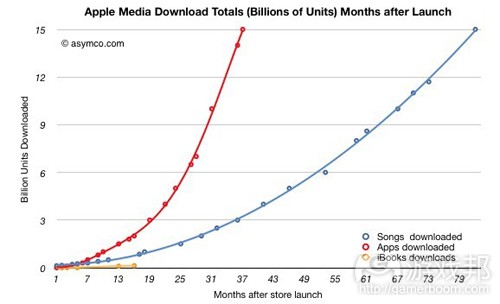
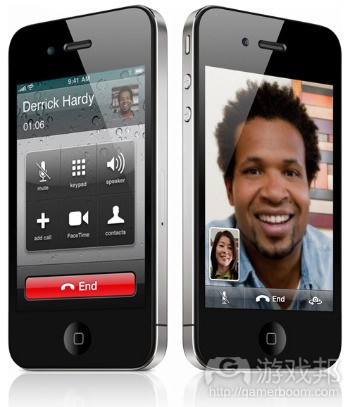

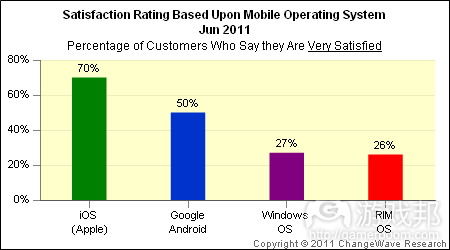
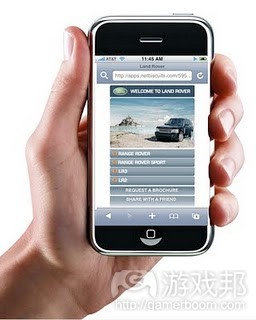


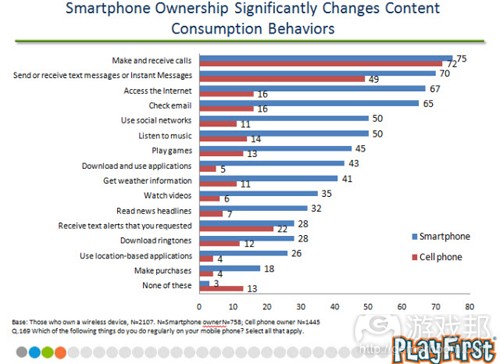

















 闽公网安备35020302001549号
闽公网安备35020302001549号